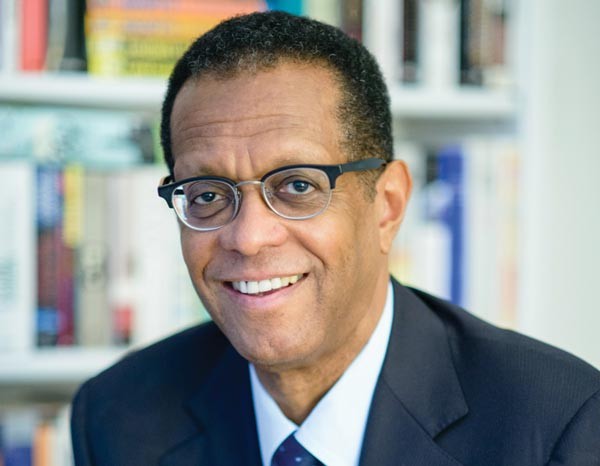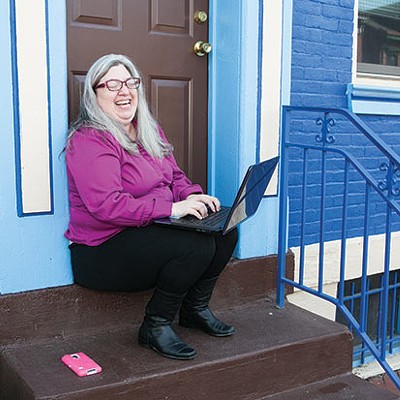
Heard of Mercedes Gorden? How about Dan Berschinski? In 2007, Gorden was among those grievously injured when a bridge over the Mississippi River in Minnesota suddenly collapsed. In 2009, Berschinski, a U.S. army lieutenant, lost both legs — and nearly his life — to an IED while on patrol in Afghanistan.
Gorden and Berschinski are among those former New York Times columnist Bob Herbert profiles in his new book, Losing Our Way: An Intimate Portrait of a Troubled America (Doubleday).
In two decades as Times columnist, Herbert was that rare syndicated pundit dedicated not to Beltway politics or ideological scuffles, but everyday matters like poverty, employment and education. Herbert retired his column in 2011 and is now a distinguished senior fellow at liberal think tank Demos. In the well-reported Losing Our Way, he scorches America's leaders for their folly and failures on the nation's decaying infrastructure, its endless wars, our public schools and the economy, especially jobs. And he urges ordinary Americans to get organized and fight back.
Herbert's book launch last week, in Pittsburgh, was hosted by Yinzercation, the locally-based public-education activist group he profiles in Losing Our Way. Before his talk, he sat down with CP. (The following is an expanded version of an interview that appeared in the print edition.)
What do you mean in Losing Our Way by the phrase "our national penchant for self-destruction"?
The big challenges facing the country are not a secret to anyone. But we've been unwilling for the most part to engage those challenges in any kind of serious way. And in fact we do things that work against us. Sept. 11, 2001, was obviously a tragedy. But that was 13 years ago. We're still in Afghanistan and we've reengaged in Iraq. That cannot be helpful in terms of addressing our domestic issues.
In terms of public education, the children who are doing the poorest in our schools are the children who are the poorest. They come from the most economically deprived families. And yet we will not address the issue of poverty in any kind of constructive or systematic way.
We know that infrastructure is critical to our way of life. And we know that it's old and in many cases decrepit. And yet we won't often even do the fundamental basic maintenance that's required to keep the infrastructure in good repair, let alone rebuild the infrastructure.
What's behind that negligence?
I think that it's essentially just a breakdown in leadership. Our public officials are the ones that we elect to look out for the important issues of the day. And I think that what we have seen, is that rather than look out for the best interest of ordinary working men and women in America, public officials have formed an alliance with the corporate elite, the financial elite, to look out for their best interest.
And the result, I think, is that the great mass of the people ... I think they feel essentially powerless. I think they assume — in many cases correctly — that they go unheard.
What about voting?
I think voting is absolutely essential, and I wish the percentages of people voting were much higher. That said, I think it's not enough. I think people need to become more civically engaged. One of the reasons I've spent so much time in book on what's happened with parents fighting back in Pittsburgh, is that's what I think is a true model for what I'd love to see happen across the country — people fighting back.
Can't protest movements feel futile too?
The civil-rights movement, people weren't paying much attention to that in the beginning. I remember the women's movement, when I was a young man, the feminists were laughed at, they were ridiculed in the popular press. And yet they stayed at it. And they changed the way life is lived by women in this country. The gay-rights movement was not taken seriously in the beginning. So it is possible to get traction even when there is only a small number of activists in the beginning. The important thing is to be organized and to stay with it.
What determines whether people actually fight back?
Leadership is so important at all levels. You need someone to step forward and make a compelling case who has these almost mysterious leadership qualities. Because what happens is, it emerges that there are issues that people care about, but that they may not know what to do about those issues. And if you get some of these leaders — in this case, I met [Yinzercation founders] Jessie Ramey and Kathy Newman, but obviously there were a lot of people who were important to this education movement in Pennsylvania. But these were folks who were able to make the case to ordinary people, "Look, this is what's going on, these are the problems that we're facing, but here's what we can do about it." [Editor's note: Newman is an occasional CP contributor.]


















